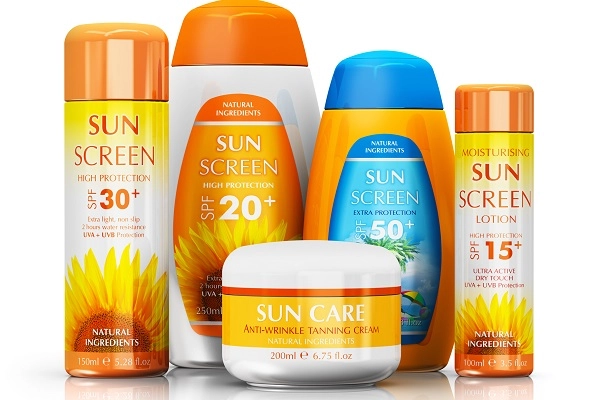Sunscreen: Your burning questions answered


Q: Why should I wear sunscreen?
A: The sun gives off two kinds of rays that can damage your skin. Ultraviolet B (UVB) rays cause sunburns on the surface of the skin. Extended exposure to UVB rays is the leading cause of skin cancers, including deadly melanoma. Ultraviolet A (UVA) rays go into the deeper layer of skin — the dermis — and cause tissue damage such as tanning and wrinkles.
To get the most protection, you want a broad-spectrum sunscreen — one that protects against both UVB and UVA rays.
Q: What does the SPF number on the sunscreen bottle mean?
A: SPF stands for sun protection factor. It measures how long a sunscreen will protect you from getting burned by UVB rays. For example, if you normally burn after 10 minutes with no sunscreen, an SPF of 30 would provide you with 30 times as much protection — 300 minutes. An SPF of 50 would provide 500 minutes, and so forth.
Q: Does a higher SPF number provide more protection?
A: SPF measures how long the product provides protection, not how much of the sun’s harmful rays it blocks. No sunscreen blocks 100 percent of UVB rays, and high SPFs are not much better than SPF 30 or 50.
-
SPF 15 blocks 93 percent of UVB rays.
-
SPF 30 blocks 97 percent of UVB rays.
-
SPF 50 blocks 98 percent of UVB rays.
-
SPF 100 blocks 99 percent of UVB rays.
Q: How much sunscreen should I use?
A: Experts say to use at least two tablespoons every time you apply, and to reapply at least every two hours regardless of the SPF you’re using. If you are swimming or sweating, your sunscreen probably won’t stay put. You’ll need to reapply even more often.
Q: Since sunscreen doesn’t provide 100 percent protection, what else can I do to reduce my skin cancer risk?
A: Sunscreen should be just one of the ways you protect your skin — you also need to cover up with clothing and a hat, seek the shade and try to stay out of the sun between 10 a.m. and 4 p.m., when the rays are most direct.
Free skin cancer screenings
Are you unable to afford important health screenings?
You may qualify for a free skin cancer screening by a local dermatologist. Screenings are offered at three community locations throughout the summer. Appointments must be scheduled in advance.
Prevention and early detection are the best ways to keep your skin healthy. Learn ways to protect you and your family and how to do regular skin checks at home.
Please call Salem Cancer Institute at 503-814-1449 with questions or to schedule an appointment.